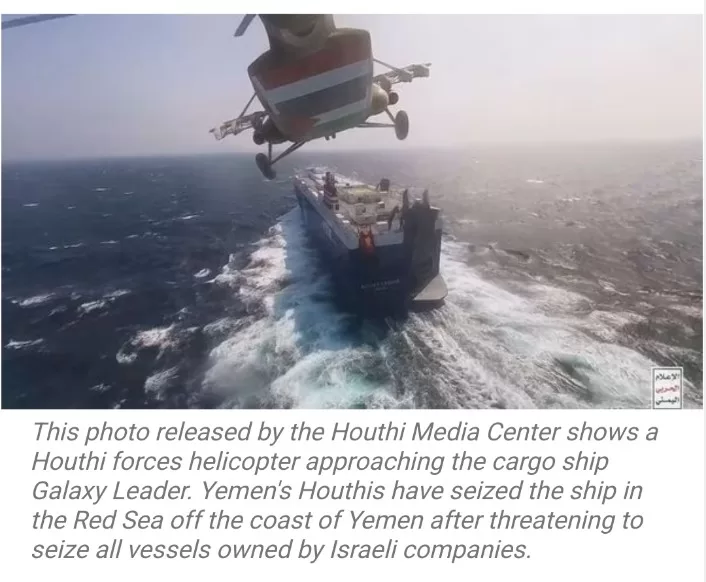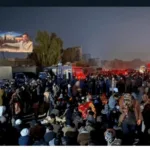In recent developments, Yemen’s Houthi rebels, supported by Iran, have heightened their assaults on commercial vessels in the strategically significant Red Sea. Employing a combination of drones and missiles, the rebels have targeted ships at the southern end of the Red Sea, prompting numerous companies to suspend shipping transits through this crucial maritime route. The repercussions extend beyond the maritime domain, impacting global oil prices and leading to the suspension of operations by major shipping companies.
Who are the Houthi Rebels?
The Houthi rebels, formally known as Ansar Allah or the “partisans of God,” gained prominence in 2014 when they seized Yemen’s capital, Sanaa. Aligned with Iran, they control the western part of Yemen, including the Red Sea coast. Yemen has been embroiled in a protracted conflict since 2015 when a Saudi-led coalition sought to restore the exiled, internationally recognized government. The war has resulted in significant casualties and created a humanitarian crisis.
Why Target Ships in the Red Sea?
The Houthi rebels’ recent attacks on commercial vessels in the Red Sea are seen as a demonstration of support for the Palestinian militant group Hamas amid Israel’s sustained military operations in Gaza. The rebels specifically aim to prevent Israeli ships from navigating the Red Sea and the Gulf of Aden until they perceive an end to what they label as Israeli aggression against Gaza.
Targets and Impact:
Specific Targets and Geographic Focus:
The Red Sea, a critical global trade route, lies south of the Suez Canal, with the Bab el-Mandeb Strait serving as a narrow passage connecting it to the Gulf of Aden. The Houthi rebels have concentrated their attacks in this area, disrupting maritime activities and making the journey through the Suez Canal more perilous.
Consequences and Global Response:
1. Multinational Coalition: In response to the escalating situation, the U.S. Secretary of Defense, Lloyd Austin, announced plans to establish a multinational coalition named Operation Prosperity Guardian to safeguard Red Sea shipping. However, this move has drawn warnings from Houthi leaders about potential missile attacks on U.S. warships.
2. Vessel Attacks and Diversions:Recent incidents include the reported rocket fire on a UK-owned ship passing through the Red Sea and attacks on vessels linked to Israel. Some ships have been diverted around the Cape of Good Hope, leading to extended journey times by up to two weeks. Shipping giants, including British energy company BP and Danish shipping company Maersk, have suspended operations in the area.
3. Economic Impact:The disruptions have led to rising insurance risk premiums for sailing through high-risk areas. Energy costs, particularly oil and fossil gas prices, have experienced an upswing following the suspension of Red Sea shipping by BP.
4. Diplomatic Dialogues: Indian Prime Minister Narendra Modi and Israeli Prime Minister Benjamin Netanyahu engaged in discussions emphasizing the need to protect shipping and the global economy from Houthi attacks.
Future Implications:
As the situation unfolds, analysts anticipate potential further increases in energy costs if attacks persist and more companies suspend shipments through the Red Sea. The international community grapples with diplomatic and strategic considerations to address the crisis, balancing maritime security with global trade stability.
In conclusion, the Houthi rebels’ disruption of the Red Sea poses multifaceted challenges, intertwining geopolitical dynamics, economic consequences, and maritime security concerns on a global scale.
*(END OF ARTICLE)*







